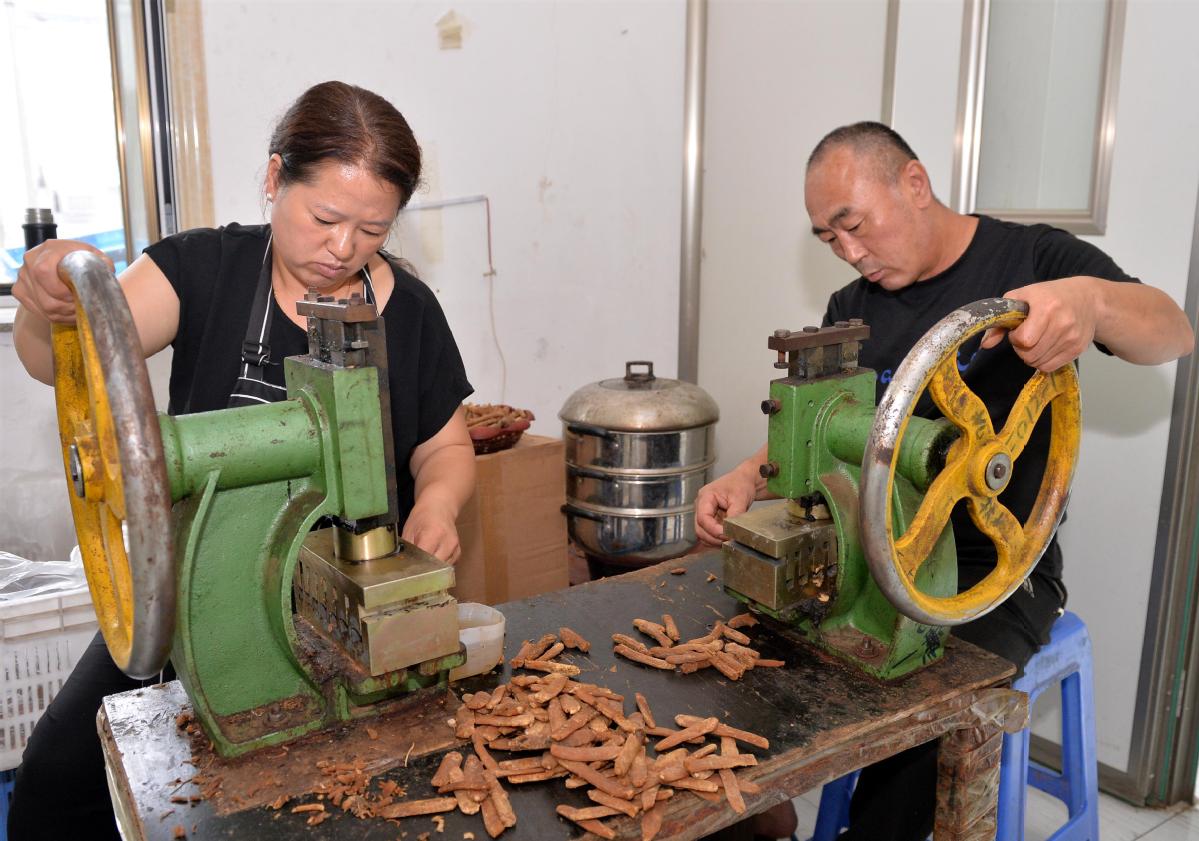Ginseng pickers pass on their skills






Like Cui, Xu's grandfather abided by the rules for picking ginseng, including fastening a red cord around the stem of the plant.
Xu prefers seeking wild ginseng to extracting it "because it took too long to dig up and I often fell asleep".
After her grandfather died, Xu, then 17, never went to the mountains again. Instead, she has followed her mother in processing and selling wild ginseng.
"Processing is not easy," she said. For example, the temperature of the water used to wash the herb must be no higher than 25 C, and great care is needed when it is dried. Workers are not allowed to wear hand cream during this process, Xu said.
"We try to keep the original appearance of the ginseng and avoid any loss of nutrients," she added.
After it is washed and dried, the ginseng is placed on red paperboard. "I enjoy this step the most, because I can see different shapes in the plants," Xu said."Some resemble cute babies, as the roots are white and fat. Some are like couples, as they embrace each other when being picked."
In 2012, Xu opened a ginseng museum in Fusong to display different species of the herb and introduce the industry to more visitors. "The museum is like a notebook in which I record my family's stories about ginseng, which I will pass down to the next generation," she said.
Farmers attracted
The herb matures from July to October. Unlike ginseng in forests, which takes more than 10 years to grow, that which is artificially cultivated in Fusong matures in about four or five years.
This faster growing time has attracted many farmers, including Li Youyi, 64. He began cultivating ginseng in 1983, and said he has raised his family's standard of living as a result.
Soil fertility caused him a problem. Ginseng absorbs many nutrients as it grows, "so it is difficult to use the land again immediately after the herb matures. We could only start by using new land, or plant some cheap corn," Li said.
The problem is being addressed by agricultural and technological experts, and some experiments are being developed, Li added.
His 35-year-old son, Li Shouguo, said the family faced another problem in making more customers aware of the business and in securing sales.
"There are challenges in both cultivation and promotion," Li Shouguo said, adding that he is learning about them from the internet and is also approaching online platforms to sell cultivated ginseng.
He opened an account on the short-video platform Douyin early this year, but said few people have followed him and watched his broadcasts. He added that he would learn from this experience.




















